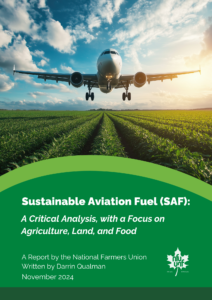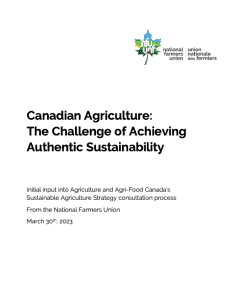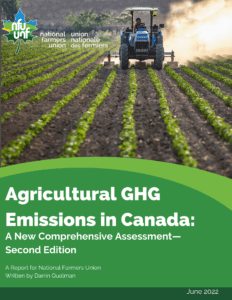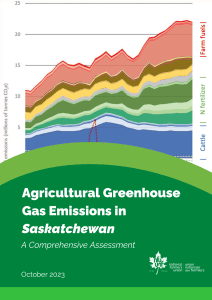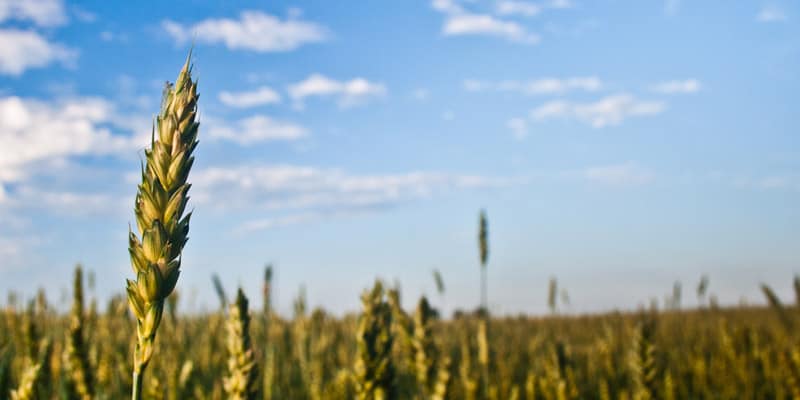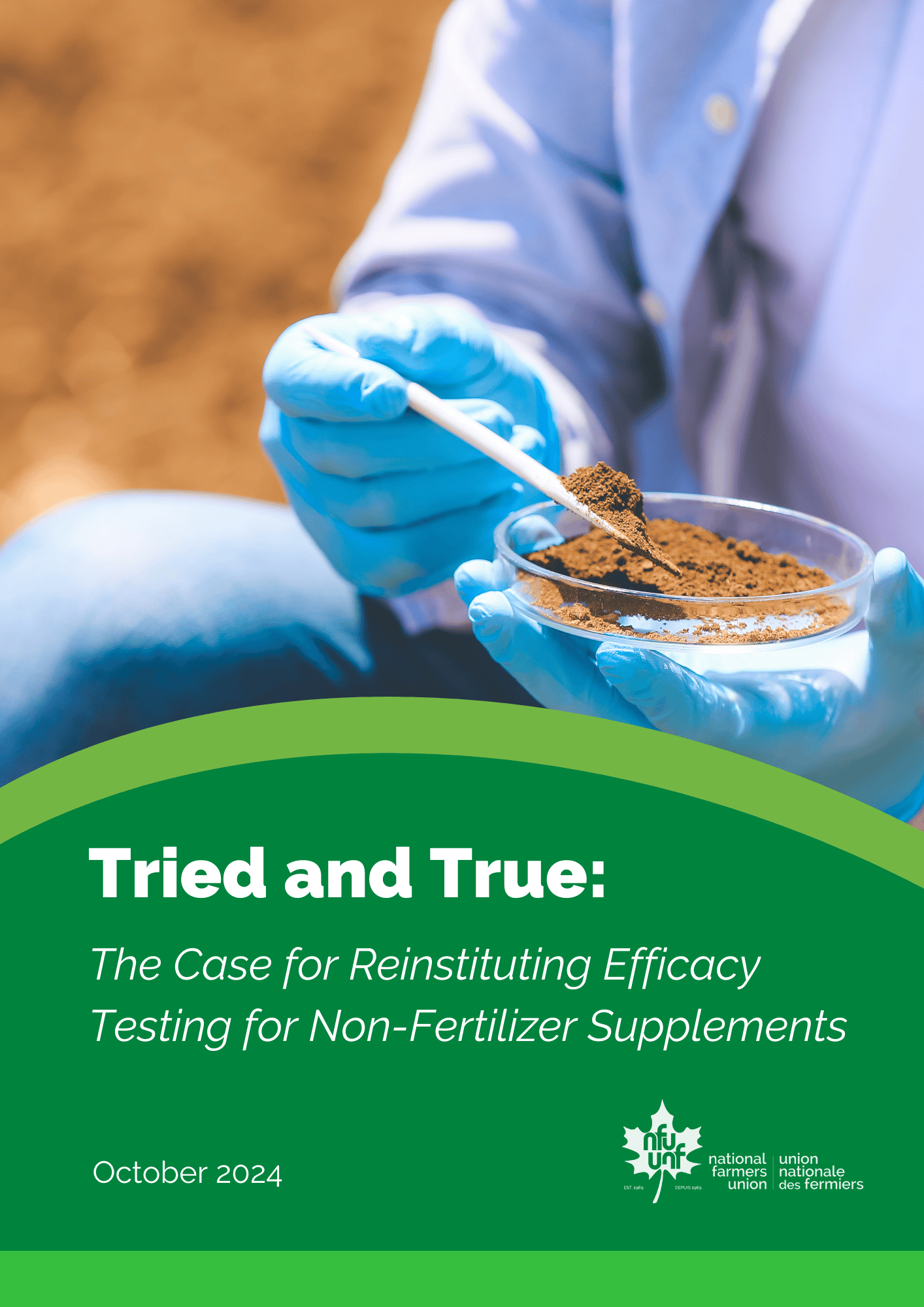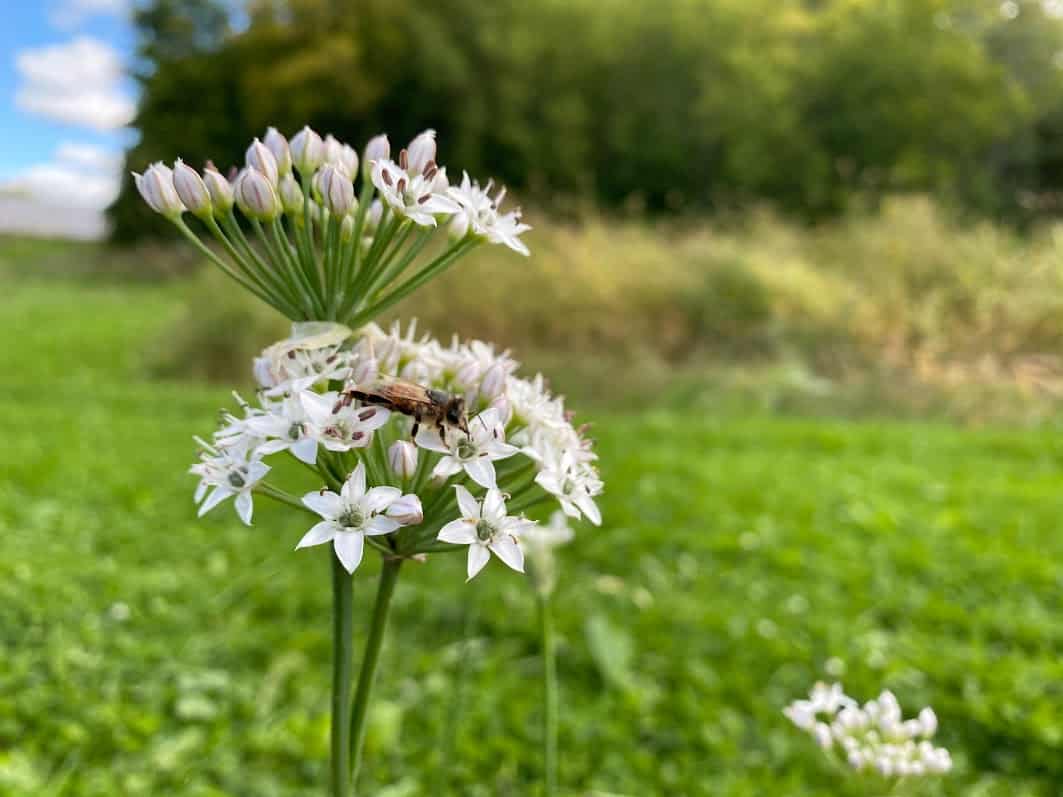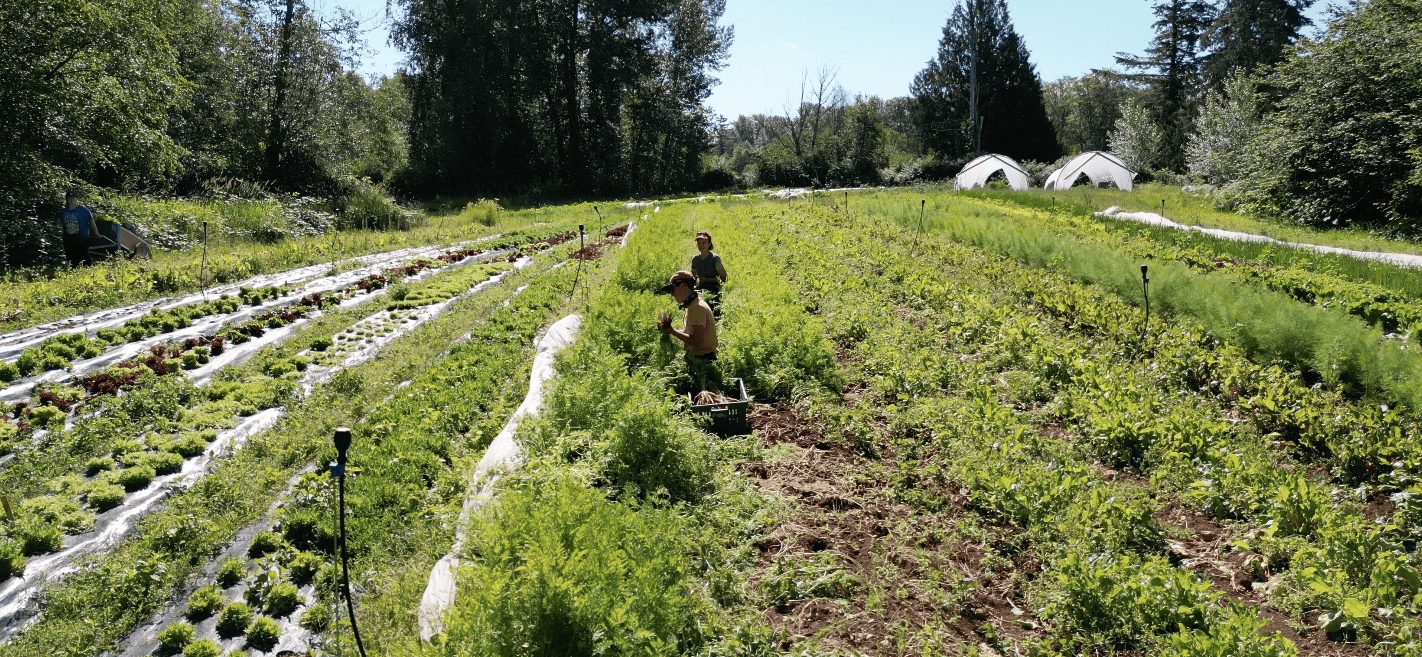
Climate Change
Detailed analyses
Sustainable Aviation Fuels (SAFs) pose significant risks to food security, biodiversity, and climate goals while failing to address aviation’s true emissions challenge. The report highlights the trade-offs and planetary limits ignored by the SAF megaproject.
Reinstating efficacy testing for non-fertilizer supplements in Canada will enhance agricultural sustainability, support soil health, and provide farmers with scientifically validated, cost-effective solutions.
The NFU urges the Canadian government to shelve plans for soil-based offset protocols.
A 3 part report on macro-trends within global human economic systems, Cdn Ag challenges in sustainability and NFU’s answers to AAFC SAS questionnaire.
Nine NFU members and officials are holding meetings with individual MPs to help advance the NFU’s proposed Canadian Farm Resilience Agency 2022-2023.
A big-picture look at nitrogen fertilizer, details its many benefits and also its negative impacts, and makes the case for optimizing.
Building off of the first report, NFU releases Second Edition of Canada’s most complete and detailed report on agricultural GHG emissions
This report provides for the first time, a complete and detailed look at nearly 40 different sources of agricultural GHGs.
The report takes a 2030 viewpoint and invites readers to imagine a wide range of positive policies and on-farm measures.
The farm crisis is real, as is the climate crisis. This report analyzes the interconnected issues and charts a sustainable path forward.
Agricultural Greenhouse Gas Emissions in Canada
The most detailed report of its kind, subdivides Canadian agricultural greenhouse gas (GHG) emissions and soil-carbon changes into 42 categories and includes analyses and data sources.
A single detailed picture of nearly all sources of greenhouse gas (GHG) emissions from agricultural production and production of associated farm inputs for the four Atlantic provinces.
Solutions to address the climate crisis in Canadian agriculture must understand the specific context of Ontario that this report provides: where exactly emissions are coming from and how they have changed over time.
Solutions to address the climate crisis in Canadian agriculture must understand the specific context of Saskatchewan that this report provides: where exactly emissions are coming from and how they have changed over time.
Farmers are on the front lines of climate change.
We need climate stability to produce our crops, raise our livestock, earn our livelihoods, maintain the health of our agriculture ecosystem, and provide the food Canadians eat. We are also positioned to help reduce Canada’s carbon footprint by changing our agricultural practices to reduce on-farm emissions.
The NFU is taking a lead role in helping farmers reduce emissions and adapt to climate change. Many of our members are already acting: putting low-carbon production into action on their own farms. We want to share our knowledge and experience with farmers and policymakers.
“The unchecked use of fossil fuels over the past 200 years has caught up with us. Today we have a duty to correct the damage done, but we also have a great opportunity to learn how we can work with Nature, including soil microorganisms, insects, plants, animals and water to produce abundant, healthy food without damaging our atmosphere.”
Ian Robson, NFU Region 5 (Manitoba) Coordinator
Both adaptation and mitigation are required for agriculture to play its part in preventing catastrophic climate change. The NFU believes in action that puts farmers knowledge at the centre. We develop and advocate for evidence-based policy that benefits both farmers and the climate.
The NFU is a founding member of Farmers for Climate Solutions.
Recent Updates from the Campaign
Stay informed. National and local farm news, research, policy and advocacy efforts, straight to your inbox.
Subscribe to email updates from the National Farmers Union.
Do you work in media? Contact communications@nfu.ca for media-specific communications.
